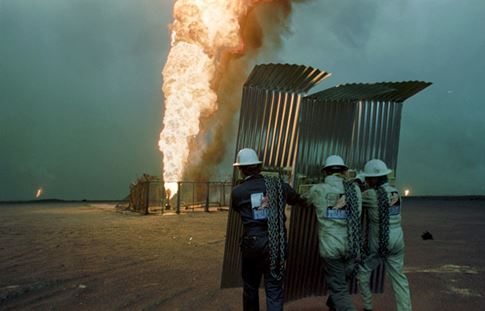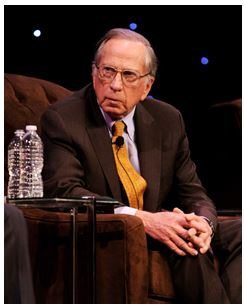I am often asked to divulge my research sources that give me my unfair advantage in trading. I usually decline such requests, unwilling to part with the ?secret sauce? that enables me to beat the market, as well as most other hedge fund managers year after year. Why level the playing field for my competitors, what few there are?
However, it would be greedy and selfish of me not to divulge one of my most important sources of red-hot information about the energy markets. That would be the newsletter, Oil & Energy Insider, published by my friend and comrade in arms in the online education business, Jim Stafford.
Jim has put together a crack team of analysts and writers and distills their collective wisdom into a daily publication sent out to paying subscribers. The talent includes my buddy, oil guru, Dan Dicker, Dave Forest and Martin Tiller.
Dicker made a fortune when his oil trading firm was bought out a few years ago, and now hangs around for the love of the trade, much as I do. He consults on trading strategies with major hedge funds and is a regular personality in the media. It hasn?t hurt that he has been dead right on the direction of oil for the past 15 years.
Dan is also a sector stock picker, although he thinks the energy sector is somewhat over stretched after a great run. His favorites to buy here are Anadarko (APC), which should bounce back hard after an outstanding lawsuit is resolved. Another is Noble Energy (NBL), which Dan believes has the best and most undervalued portfolio of assets in the energy space.
Dan is an oil bull, although not a peak oiler. Fracking, alternatives, and conservation are all great, but don?t change the reality that oil will be our major source of energy for the next 30 years.
As I never tire of pointing out to readers, nothing in the energy industry ever happens quickly. US shale oil is only contributing 2 million barrels a day out of global production of 91 million, and is growing slowly.
He doesn?t think that Texas tea will fall below $92 a barrel in the current economic environment. He thinks that the risk/reward of an oil short at $100/barrel is terrible. Only a financial crash could take it substantially below that, such as we had in 2008, when it hit $30.
However, the United States Oil Fund (USO) is another story. Because of the drag created by the contango, whereby far month oil futures contracts trade at huge premiums to front month ones, this ETF is almost guaranteed to go to zero.
It fact, the possibility is even disclosed in the prospectus. This is why short plays in the (USO) on top of an oil spike is one of my favorite in the entire financial arena.
The long term trend for oil is up, driven by ever expanding demand from Asia. He goes into depth on the issue in his 2011 book, Oil?s Endless Bid. Usually the impetus for an oil price spike is a geopolitical one that comes out of the blue.
This is why Oil & Energy Insider has tied up with the Washington political and country risks intelligence firms, Southern Pulse and ISA Intel, regular contributors to Stafford?s newsletter. These guys spend their days scrounging remote countries best known as a reliable source of venereal disease. Hey, better them than me.
The problem is that these are the same counties that regularly unleash flocks of vicious black swan on the financial markets, particularly those homing in on energy. Look no further than the recent crisis in the pipeline endowed Ukraine, which rose up out of nowhere to threaten a global economic recovery. Political instability in Nigeria is another ever-present threat to your energy supply. Ignore them at your peril. The list goes on.
To take a look at recent sample issues of Oil & Energy Insider, please click on the following:
http://oilprice.com/newsletters/premium/oei140314 and
http://oilprice.com/newsletters/premium/oei7314 .
To read a much more detailed description of the breadth of services offered by Oil & Energy and an opportunity to subscribe please click here: Oil & Energy Insider. At $497 a year it?s a real bargain. Better get a move on, because they are about to raise their price to $797, hence the urgency of this piece.













